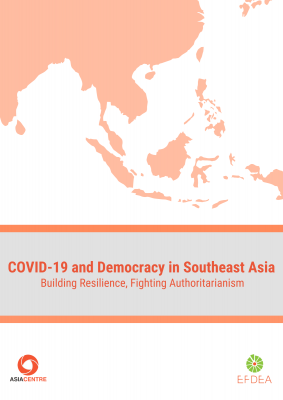ABSTRACT
COVID-19 and Democracy in Southeast Asia: Building Resilience, Fighting Authoritarianism examines trends under which Southeast Asian governments have used crises as opportunities for their political advantage. This report, centred around the Coronavirus Disease 2019 (COVID-19), highlights the routine response from governments with the announcement of emergency decrees and laws, suspension of civil freedoms, corruption of electoral democracy, censorship, digital surveillance measures, and framing human rights activists as national security threats. Post- crises, governments then enact long term laws and policies that effectively shrink civic space. Their methods also include limiting media and journalists’ watchdog activities through fake news and defamation labels, whilst substantially contributing to the dwindling civil society funding. A set of recommendations are also prescribed for the United Nations, Governments, Donors and Civil Society Organizations.
CONTENTS PAGE
Executive Summary
- Introduction
- Background
- Laws and Policies
- Curbing Protests
- Eroding Electoral Democracy
- Stifling Political Criticism
- Attacking the Media
- Increasing Surveillance
- Funding Shifts
- Recommendations
- Conclusion
Bibliography




